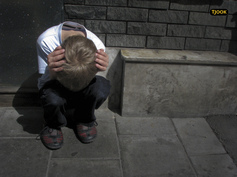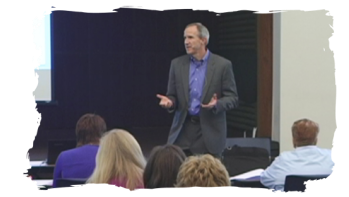
Chicago Mayor Rahm Emanuel famously said during his time as White House Chief of Staff, "You never want a serious crisis go to waste." He went on to say that a crisis gives you "an opportunity to do things that you could not do before."
We can apply that to life in general, especially when it comes to failure. None of us wants to fail, and yet it's often the pathway to future success. It presents opportunities to do things and see things that otherwise would not have been possible. Failure is even better if you can incorporate the following three elements:
We can apply that to life in general, especially when it comes to failure. None of us wants to fail, and yet it's often the pathway to future success. It presents opportunities to do things and see things that otherwise would not have been possible. Failure is even better if you can incorporate the following three elements:
Failing at the right things, learning from failure and sharing your story.
Failing at the Right Things
If you're going to fail, fail at something big. Try something worthwhile. The risk-reward ratio is important here. By trying something big and failing, you still benefit from having been stretched and shaped by the ordeal. The bigger the ordeal, the bigger the impact of the failure on your life.
Learning from Failure
Don't just pick yourself up and move on. You must reflect on what went wrong and see how you might have done things differently or how your misjudged the situation. This is not self-pitty or wallowing in regret. It's bold analysis and reflection that can yield powerful lessons.
Sharing Your Story
The only thing that tops learning from failure is to pass on what you learn to others. But, don't just tell them the lesson, give them the whole story. Tell them how you felt, what you sensed was happening and how you came through the situation. Your story can be of great comfort to someone going through a similar situation or a challenge to others who need to see that even failure can have yield positive results. Telling your story also helps you process the experience more deeply.
It's only normal to want to put failure behind you just as fast as you can. But, don't miss out on its hidden benefits. Don't let it go to waste.
Failing at the Right Things
If you're going to fail, fail at something big. Try something worthwhile. The risk-reward ratio is important here. By trying something big and failing, you still benefit from having been stretched and shaped by the ordeal. The bigger the ordeal, the bigger the impact of the failure on your life.
Learning from Failure
Don't just pick yourself up and move on. You must reflect on what went wrong and see how you might have done things differently or how your misjudged the situation. This is not self-pitty or wallowing in regret. It's bold analysis and reflection that can yield powerful lessons.
Sharing Your Story
The only thing that tops learning from failure is to pass on what you learn to others. But, don't just tell them the lesson, give them the whole story. Tell them how you felt, what you sensed was happening and how you came through the situation. Your story can be of great comfort to someone going through a similar situation or a challenge to others who need to see that even failure can have yield positive results. Telling your story also helps you process the experience more deeply.
It's only normal to want to put failure behind you just as fast as you can. But, don't miss out on its hidden benefits. Don't let it go to waste.


 RSS Feed
RSS Feed
